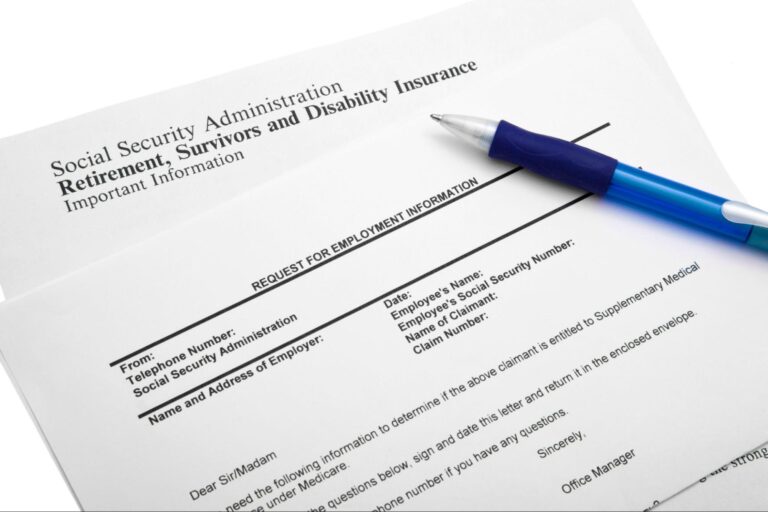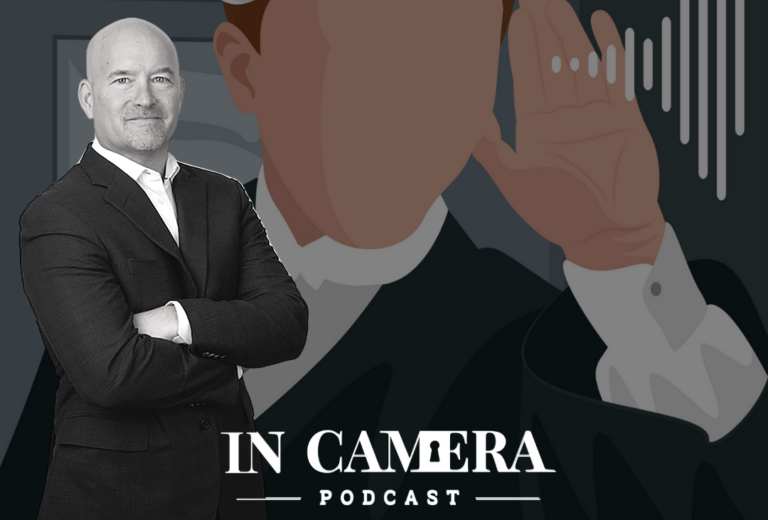Can Family Sue For Wrongful Death?

The death of a loved one can be an overwhelming experience to navigate. When your loved one’s passing is the result of the negligence of an individual or business entity, the heartache, and frustration can be compounded.
One way family members can ease the pain is by pursuing a wrongful death lawsuit against responsible parties. At the law office of Bachus & Schanker, our legal team is committed to helping family members of wrongful death victims understand and navigate the legal process and road to recovery. Resources like the book “Unthinkable” by Kyle Bachus can help equip families with the knowledge and power to get the justice they deserve.
Schedule a free consultation with Elite Litigation Group to learn about your rights and options if your loved one died because of someone else’s negligence.
What is a wrongful death lawsuit?
A wrongful death lawsuit serves several purposes. A successful claim can result in hefty fines and other punishments. This holds negligent parties accountable and can help ensure necessary changes are made to prevent similar accidents from happening in the future.
Wrongful death lawsuits can be an avenue for pursuing compensation for expenses that have accrued because of your loved one’s death. This includes expenses like medical care and treatment, property loss, and other unexpected bills. A successful wrongful death lawsuit can also help surviving family members recover damages such as lost wages and income. This compensation can help ease a family’s financial struggles during this time of grief.
Who can sue for wrongful death?
Different states have different laws on who can bring forward a wrongful death lawsuit. In Colorado, the law stipulates that only surviving family members can bring forward a claim. Even then, there are stipulations on which surviving family members can file suit and when.
Typically, surviving spouses can file the lawsuit immediately in the first year following an individual’s wrongful death. Children can also file a lawsuit but must wait one year after the death occurred. This ensures that a spouse or an individual’s closest heir can recover the damages they are entitled to. If a child has the permission of a spouse to file during the first year, a child can also file as well.
Parents are also eligible to file a wrongful death lawsuit in the second year after a spouse has filed a suit. If an individual does not have a spouse or children at the time of death, parents can file immediately.
How many people are allowed to file a wrongful death claim for their loved one?
Under Colorado’s Wrongful Death Act, Statute Section 13-21-202, in the first year of an individual’s death, only a surviving spouse can bring forward a wrongful death lawsuit. If there is no surviving spouse, children may file a claim. If the decedent has no spouse or children, their parents may bring forward a claim.
Multiple wrongful death lawsuits can be brought forward, but they have to fall under the time limits and must not violate the rights of a surviving heir who filed first.
How do you prove wrongful death?
Proving a wrongful death lawsuit depends on the ability to establish the following four elements:
Negligence
A successful wrongful death lawsuit must show that a defendant had a duty of care and that they breached this duty of care.
For example, employers have a duty of care to provide a safe and hazard-free work environment. They do this by establishing policies and following strict guidelines and regulations. If they violate these policies, guidelines, and regulations, they can be shown to have acted negligently.
Negligence does not have to be intentional, it can also be accidental. An employer does not have to intentionally violate their workplace policy. If they accidentally do so and it results in an individual’s death, they can still be held liable.
A person’s death
As the name suggests, a wrongful death lawsuit must indicate that someone has died and that their death could have been prevented had a breach of duty not occurred. Colorado requires that surviving family members file a wrongful death lawsuit within two years of their loved one’s passing. Waiting beyond the statute of limitations may legally prevent family members from being able to file a claim.
Causation
Causation is the legal concept that an individual’s wrongful death was the direct result of a defendant’s negligence. To prove causation, the plaintiff must show that their loved one would still be alive if it wasn’t for the defendant’s negligence.
Damages
To have a successful claim, a loved one must show that they suffered damages because of their loved one’s death. These typically include compensatory damages, but in unique cases, punitive damages may be awarded as well.
Common examples of compensatory damages include the following:
- Loss of income and lost wages
- Loss of service to the family
- Pain and suffering for both the victim and the surviving family members
- Medical costs associated with treatment to care for the deceased
- Mental anguish
Steps to file a wrongful death lawsuit
To prepare your claim for success, some steps should be taken, including the following:
Hire the right lawyer
It’s important to work with a wrongful death attorney who understands your case and the circumstances surrounding your loved one’s death. An experienced wrongful death attorney will be well-versed in state and local statutes that apply to your case.
Investigate
A successful wrongful death lawsuit will be supported by strong evidence. A plaintiff must provide strong evidence that their loved one’s death happened because of the negligence of the defendant. Additionally, the plaintiff should be able to prove that the defendant was negligent in their action, whether it was intentional or reckless.
Unlike a criminal case, the burden of proof is much lower in a civil wrongful death case. However, that does not take away from the reality that you’ll need to collect as much evidence as possible to support your claim. Critical forms of evidence to include in your lawsuit include but are not limited to the following:
- Pictures or videos — such as surveillance footage — proving negligence
- Statements from witnesses who saw the accident occur
- Expert witness testimony
Initial settlement negotiations
An experienced wrongful death attorney will work to negotiate a comprehensive settlement with liable parties. They will do this by crafting and sending demand letters to a defendant’s insurance company and any other parties involved in the wrongful death lawsuit.
A successful settlement will cover the cost of your damages, including funeral costs, medical costs, and other pain and suffering compensation. The insurance company for liable parties will contest initial claims and try to negotiate a lower settlement amount. Working with an experienced wrongful death lawyer means you’ll have a legal representative who will vigorously fight for your rights.
Filing a wrongful death lawsuit
If initial settlement negotiations prove unfruitful, the next step is to file a wrongful death lawsuit. A wrongful death lawsuit will be filed with the circuit court clerk’s office and will detail the events that led to your loved one’s death and how a defendant was responsible for the death.
Even after filing a lawsuit, both parties can still agree to a settlement. If a settlement is not reached, a case will go to trial, where a verdict will be returned.
When can a wrongful death claim be filed?
Like many states, Colorado observes a statute of limitations with wrongful death lawsuits. The statute of limitations for wrongful death lawsuits in Colorado is two years. Restrictions depend on how a loved one is related to a wrongful death victim.
How are wrongful death suits paid out?
Resolutions in wrongful death lawsuits take time. This is because of several factors including settlement negotiations, litigation, and the overall process of a trial. Whether you reach a settlement or your lawsuit is resolved through a trial, you’ll either be paid out through a lump sum payment or a structured settlement.
A lump sum payment is when you receive a single payment of awarded damages. A structured settlement spreads out payment over a course of a couple of months or a couple of years. You’ll receive recurring payments (usually once a month) until your settlement funds are dispersed fully.
Are wrongful death settlements taxed?
When a wrongful death settlement is resolved, a plaintiff can receive different types of damages including economic, non-economic, and punitive damages. Different types of damages have different tax implications. For example, non-economic damages like loss of consortium and pain and suffering are not taxed. Additionally, economic damages are not classified as income and are not taxable either.
Punitive damages are not considered compensation, and as a result, can be deemed taxable income. Understanding how damages are taxed can help you better understand wrongful death settlement amounts.
Reasons to hire an attorney for a wrongful death claim

Wrongful death lawsuits are only as successful as the evidence presented and the legal team representing you. Working with an experienced wrongful death attorney is critical in helping you build a strong case.
Working in tandem with our Elite Litigation Group is our Victim Advocates Team, a group of highly specialized professionals committed to the recovery, defense, and well-being of our clients. Our Victim Advocates Team will connect you to resources in your community and help you navigate the road ahead. Our team will also work to help collect pertinent evidence to support your claim, conduct thorough investigations, and provide educational resources and outreach.
At Bachus & Schanker, we are committed to serving families who have lost loved ones because of the negligence of another. Our Elite Litigation Group is a highly specialized team of lawyers with decades of experience in wrongful death lawsuits and catastrophic injuries. This team is committed to fighting for your rights as we help to recover the compensation and justice you and your family deserve.
Contact our wrongful death attorneys for assistance and see what it means to work with a legal team that is committed to fighting for your rights.
Sources:
CRS 13-21-201. (2016).
CRS 13-21-202. (2019).
Punitive Damages. (2022).





